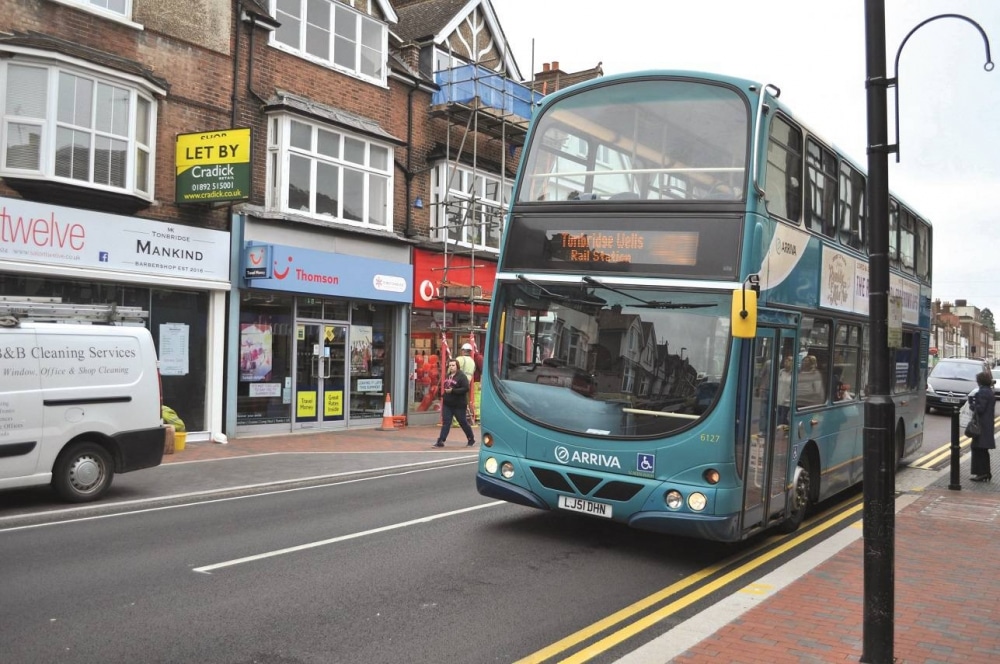The publication of the draft document coincides with the Chancellor Philip Hammond announcing a £1.5billion boost to high streets in the Budget.
Small retailers are set to benefit from £900million in business rates relief and £675million which will be invested in town centres and transport links.
Tonbridge & Malling Borough Council has identified a number of areas where the local economy could be improved:
Making more commercial premises available
Bolstering infrastructure to meet future expansion
Providing more information and advice for businesses
Offering career guidance and opportunities to improve skills
Making the High Street more of an ‘experience’ for visitors
Raising the borough’s tourism profile
Helping rural companies and saving village stores
The draft strategy states: “Despite having a relatively successful and resilient local economy, there are a number of challenges that the borough faces, and which need to be addressed if the area is to continue to enjoy a high degree of prosperity.”
The report notes that despite ‘an extremely entrepreneurial spirit – with business creation being very high – the survival rates for these businesses is not as high as it could be’.
“Only around 60 to 65 per cent of businesses in the borough last three years or more. Whilst a high business churn is not always necessarily a bad sign, it does indicate that there is a need for greater business support and advice.”
It adds that the provision of facilities for businesses is not sufficient to meet the growing demand, ‘and yet at the same time, existing commercial premises are being lost to residential conversions, especially in Tonbridge’.
The council also recognises an evolving landscape for the traditional workforce: “In a changing world, where automation is replacing some lower skilled work and generating new opportunities, it is important that our current crop of students and existing workforce do not get left behind.
“Skills attainment in the borough is higher than the average for Kent as a whole, but still lags behind that for the rest of the South East.”
The analysis notes that growth in the number of jobs between 2009-15 was ‘relatively flat’, increasing by 3.6 per cent while the figure for West Kent in general is 12 per cent.
Earnings are comparatively high at £33,372 per annum, compared to £29,962 in Tunbridge Wells.
But the report warns that almost two-thirds of residents commuted out of the borough and those working in it earned £28,236 – with Tunbridge Wells closing the gap on £27,812.
The relationship between the High Street and the town is also put in the spotlight, with an emphasis on visiting for more reasons than simply shopping.
“Our town centres are evolving in response to how people now shop. With an increased number of transactions online, our high streets are no longer ‘retail centres’, but are evolving into places where people go to get an ‘experience’, be it having a coffee, visiting the gym or enjoying a meal out.
“Whilst a lot of this change is happening organically, it is important that we continue to support our businesses through these changes by making our town centres attractive places to visit.”
Meanwhile businesses operating in rural areas face ‘a number of constraints’ including poor broadband and lack of access to finance.
The council also says: “The traditional village shop is in danger of disappearing as shopping patterns evolve. In addition to providing an economic function, these stores are also often at the heart of the community.”
Nicolas Heslop, the council Leader, is also Cabinet Member for Economic Regeneration. He said: “The borough council has a key role to play both individually and in partnership with others to provide support and advice to the local business community.
“Much has been achieved over the last four years with recent Economic Vibrancy Index figures showing that Tonbridge and Malling was the best performing area in Kent for 2018.
“But we cannot rest on our laurels and this new strategy will give us the focus we need to meet the challenges ahead as we strive to help businesses gain the skills, funding and opportunities they need for long-term success.”
We need innovative, concrete measures…
Howard Porter, chair of Tonbridge Town Team, responds to the Economic Regeneration plans:
We welcome the new draft but this is a very broad-brush document which must be fleshed out with innovative and concrete measures.
In particular, we welcome the recognition that the High Street needs to focus more on experiences and we also need to do much more to support independent businesses, to encourage them to innovate and ensure that the right training opportunities are in place.
I think the council tax and rent burden is still far too onerous and is a disincentive to small businesses in particular.
We can do more to support local markets as they provide a direct, relatively cheap route to become businesses – especially for start-ups.
But we need to go further and support them in transitioning to bricks and mortar.
And I would also like to see concrete support for the arts and culture, which are known drivers of regeneration.
That’s why the Town Team formed the Tonbridge Scene and is working with the local creative community, Tonbridge School and other stakeholders to expand this offering.
The Town Team is committed to working with others to deliver the inclusive economic regeneration that townspeople want to see.
How vibrant do you feel?
The Economic Vibrancy Index gives an overview of economic performance that looks beyond Gross Domestic Product. Devised by the accountancy network Grant Thornton this year, it looks at: prosperity; dynamism and opportunity; inclusion and equality; health, wellbeing and happiness; resilience and sustainability; community, trust and belonging.








